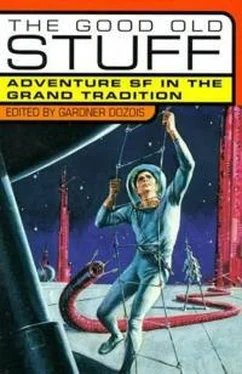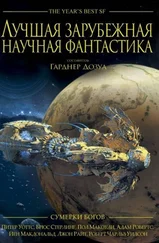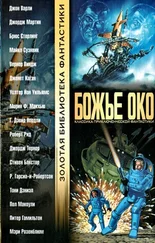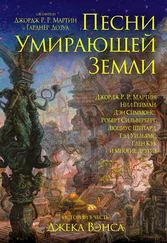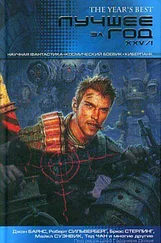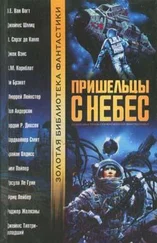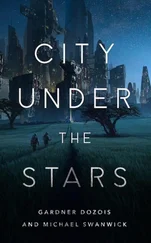Гарднер Дозуа - The Good Old Stuff
Здесь есть возможность читать онлайн «Гарднер Дозуа - The Good Old Stuff» весь текст электронной книги совершенно бесплатно (целиком полную версию без сокращений). В некоторых случаях можно слушать аудио, скачать через торрент в формате fb2 и присутствует краткое содержание. Год выпуска: 1998, ISBN: 1998, Издательство: St. Martin's Griffin, Жанр: Фантастика и фэнтези, на английском языке. Описание произведения, (предисловие) а так же отзывы посетителей доступны на портале библиотеки ЛибКат.
- Название:The Good Old Stuff
- Автор:
- Издательство:St. Martin's Griffin
- Жанр:
- Год:1998
- ISBN:0-312-19275-4
- Рейтинг книги:3 / 5. Голосов: 1
-
Избранное:Добавить в избранное
- Отзывы:
-
Ваша оценка:
- 60
- 1
- 2
- 3
- 4
- 5
The Good Old Stuff: краткое содержание, описание и аннотация
Предлагаем к чтению аннотацию, описание, краткое содержание или предисловие (зависит от того, что написал сам автор книги «The Good Old Stuff»). Если вы не нашли необходимую информацию о книге — напишите в комментариях, мы постараемся отыскать её.
The Good Old Stuff — читать онлайн бесплатно полную книгу (весь текст) целиком
Ниже представлен текст книги, разбитый по страницам. Система сохранения места последней прочитанной страницы, позволяет с удобством читать онлайн бесплатно книгу «The Good Old Stuff», без необходимости каждый раз заново искать на чём Вы остановились. Поставьте закладку, и сможете в любой момент перейти на страницу, на которой закончили чтение.
Интервал:
Закладка:
“Come,” said Rhul, “and I will show you the machine.”
He led me from the room and up a winding stair. There were tall embrasures and looking through them I discovered that we were in the base of the very high tower with the globe. They must have carried me back to it after Duani had chased me with her laughter and her pebbles.
I looked out over the glowing streets, so full of splendor and of silence, and asked Rhul why there were no ghosts inside the tower.
“You have seen the globe with the crystal rods?”
“We are under the shadow of its core. There had to be some retreat for us into reality. Otherwise we would lose the meaning of the dream.”
The winding stair went up and up. The chain between my ankles clattered musically. Several times I tripped on it and fell.
“Never mind,” Duani said. “You’ll grow used to it.”
We came at last into a circular room high in the tower. And I stopped and stared.
Most of the space in that room was occupied by web of metal girders that supported a great gleaming shaft. The shaft disappeared upward through the roof. It was not tall but very massive, revolving slowly and quietly. There were traps, presumably for access to the offset shaft and the cogs that turned it. A ladder led to a trap in the roof.
All the visible metal was sound with only a little surface corrosion.
What the alloy was I don’t know and when I asked Rhul he only smiled rather sadly. “Knowledge is found,” he said, “only to be lost again. Even we of Shandakor forget.”
Every bit of that enormous structure had been shaped and polished and fitted into place by hand. Nearly all the Martian peoples work in metal. They seem to have a genius for it and while they are not and apparently never have been mechanical, as some of our races are on Earth, they find many uses for metal that we have never thought of.
But this before me was certainly the high point of the metalworkers’ craft. When I saw what was down below, the beautifully simple power plant and the rotary drive set-up with fewer moving parts than I would have thought possible, I was even more respectful “How old is it?”
I asked and again Rhul shook his head.
“Several thousand years ago there is a record of the yearly Hosting of the Shadows and it was not the first.” He motioned me to follow him up the ladder, bidding Duani sternly to remain where she was. She came anyway.
There was a railed platform open to the universe and directly above it swung the mighty globe with its crystal rods that gleamed so strangely.
Shandakor lay beneath us, a tapestry of many colors, bright and still, and out along the dark sides of the valley the tribesmen waited for the light to die.
“When there is no one left to tend the machine it will stop in time and then the men who have hated us so long will take what they want of Shandakor. Only fear has kept them out this long. The riches of half a world flowed through these streets and much of it remained.”
He looked up at the globe. “Yes,” he said, “we had knowledge. More, I think, than any other race of Mars.”
“But you wouldn’t share it with the humans.”
Rhul smiled. “Would you give little children weapons to destroy you? We gave men better ploughshares and brighter ornaments and if they invented a machine we did not take it from them. But we did not tempt and burden them with knowledge that was not their own. They were content to make war with sword and spear and so they had more pleasure and less killing and the world was not torn apart.”
“And you—how did you make war?”
“We defended our city. The human tribes had nothing that we coveted, so there was no reason to fight them except in self-defense. When we did we won.” He paused. “The other non-human races were more stupid or less fortunate. They perished long ago.”
He turned again to his explanations of the machine. “It draws its power directly from the sun. Some of the solar energy is converted and stored within the globe to serve as the light-source. Some is sent down to turn the shaft.”
“What if it should stop,” Duani said, “while we’re still alive?” She shivered, looking out over the beautiful streets.
“It won’t—not if the Earthman wishes to live.”
“What would I have to gain by stopping it?” I demanded.
“Nothing. And that,” said Rhul, “is why I trust you. As long as the globe turns you are safe from the barbarians. After we are gone you will have the pick of the loot of Shandakor.”
How I was going to get away with it afterward he did not tell me.
He motioned me down the ladder again but I asked him, “What is the globe, Rhul? How does it make the—the Shadows?”
He frowned. “I can only tell you what has become, I’m afraid, mere traditional knowledge. Our wise men studied deeply into the properties of light. They learned that light has a definite effect upon solid matter and they believed, because of that effect, that stone and metal and crystalline things retain a ‘memory’ of all that they have seen. Why this should be I do not know.”
I didn’t try to explain to him the quantum theory and the photoelectric effect nor the various experiments of Einstein and Millikan and the men who followed them. I didn’t know them well enough myself and the old High Martian is deficient in such terminology.
I only said, “The wise men of my world also know that the impact of light tears away tiny particles from the substance it strikes.”
I was beginning to get a glimmering of the truth. Light-patterns “cut” in the electrons of metal and stone—sound-patterns cut in unlikely looking mediums of plastic, each needing only the proper “needle” to recreate the recorded melody or the recorded picture.
“They constructed the globe,” said Rhul. “I do not know how many generations that required nor how many failures they must have had.
But they found at last the invisible light that makes the stones give up their memories.”‘ In other words they had found their needle. What wave-length or combination of wave-lengths in the electromagnetic spectrum flowed out from those crystal rods, there was no way for me to know. But where they probed the walls and the paving blocks of Shandakor they scanned the hidden patterns that were buried in them and brought them forth again in form and colon-as the electron needle brings forth whole symphomes from a little ridged disc.
How they had achieved sequence and selectivity was another matter. Rhul said something about the “memories” having different lengths. Perhaps he meant depth of penetration. The stones of Shandakor were ages old and the outer surfaces would have worn away. The earliest impressions would be gone altogether or at least have become fragmentary and extremely shallow.
Perhaps the scanning beams could differentiate between the overlapping layers of impressions by that fraction of a micron difference in depth. Photons only penetrate so far into any given substance but if that substance is constantly growing less in thickness the photons would have the effect of going deeper. I imagine the globe was accurate in centuries or numbers of centuries, not in years.
However it was, the Shadows of a golden past walked the streets of Shan-dakor and the last men of the race waited quietly for death, remembering their glory.
Rhul took me below again and showed me what my tasks would be, chiefly involving a queer sort of lubricant and a careful watch over the power leads. I would have to spend most of my time there but not all of it.
During the free periods, Duani might take me where she would.
The old man went away. Duani leaned herself against a girder and studied me with intense interest. “How are you called?” she asked.
Читать дальшеИнтервал:
Закладка:
Похожие книги на «The Good Old Stuff»
Представляем Вашему вниманию похожие книги на «The Good Old Stuff» списком для выбора. Мы отобрали схожую по названию и смыслу литературу в надежде предоставить читателям больше вариантов отыскать новые, интересные, ещё непрочитанные произведения.
Обсуждение, отзывы о книге «The Good Old Stuff» и просто собственные мнения читателей. Оставьте ваши комментарии, напишите, что Вы думаете о произведении, его смысле или главных героях. Укажите что конкретно понравилось, а что нет, и почему Вы так считаете.
